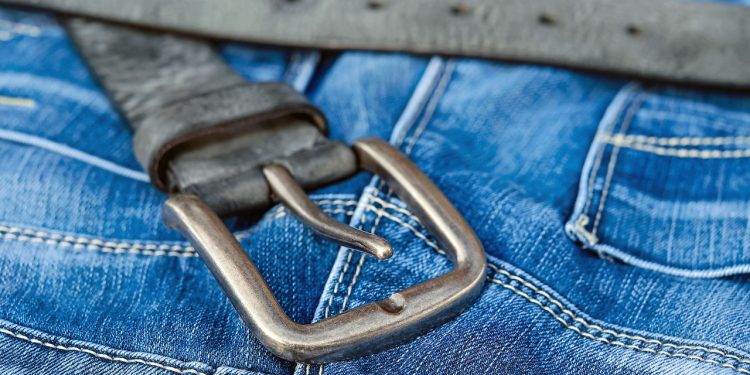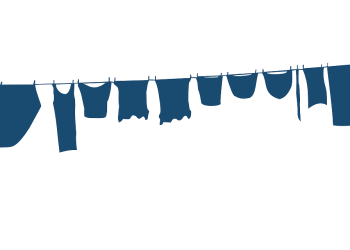Distressed jeans have become a staple in casual fashion, offering an edgy, relaxed vibe that suits a variety of looks. While many retailers sell pre-distressed jeans at a premium price, creating your own at home is an affordable and customizable alternative. With a few tools and techniques, you can transform plain denim into a trendy masterpiece. Here’s a comprehensive guide to distressing jeans like a pro.
Why Distress Your Own Jeans?
- Customization: Choose the level and placement of distressing to suit your style.
- Cost-Effective: Save money by repurposing old jeans instead of buying new ones.
- Eco-Friendly: Extend the life of worn-out jeans and reduce waste.
- Creative Expression: Add unique touches that reflect your personal aesthetic.
Materials You’ll Need
Before you start, gather the following materials:
- A pair of jeans
- Sandpaper (medium to coarse grit) or a pumice stone
- Scissors
- Tweezers
- A razor blade or utility knife
- Chalk or a fabric marker
- Cutting board or cardboard (to protect surfaces)
- Washing machine and dryer (optional)
Step-by-Step Guide to Distressing Jeans
Step 1: Choose the Right Jeans
- Opt for 100% cotton denim for the best results, as it frays and wears more naturally than stretch denim.
- Consider using an old or inexpensive pair to practice before working on your favorite jeans.
Step 2: Plan Your Design
- Mark the Areas: Use chalk or a fabric marker to outline where you want rips, frays, or worn areas. Common spots include the knees, thighs, and pockets.
- Decide the Style: Choose between subtle wear-and-tear or bold, dramatic rips.
- Keep Balance in Mind: Avoid over-distressing one area to maintain the jeans’ structure and durability.
Step 3: Protect the Other Side
- Place a cutting board or a piece of cardboard inside the jeans to prevent cutting through both layers.
Step 4: Create Worn Areas
- Sandpaper or Pumice Stone:
- Rub sandpaper or a pumice stone over the marked areas to thin the fabric.
- Focus on areas like the thighs or knees for a natural worn look.
- Use circular motions for even wear.
Step 5: Add Rips and Holes
- Razor Blade or Utility Knife:
- Make horizontal cuts in the marked areas. These should be about 1-2 inches long, depending on your desired look.
- Space the cuts evenly for a clean design or vary them for a more rugged appearance.
- Fray the Edges:
- Use tweezers to pull out vertical threads around the cuts, leaving the horizontal threads intact.
- This creates the classic distressed look with white threads exposed.
Step 6: Add Frayed Hems
- Cut off the bottom hem of the jeans for a raw edge.
- Use sandpaper or tweezers to fray the edges for a casual, undone look.
Step 7: Wash and Dry
- Wash the jeans on a regular cycle to soften the fabric and enhance the distressed effect.
- Dry the jeans in a tumble dryer to encourage fraying.
Advanced Techniques for Distressing Jeans
1. Bleaching
Add color variation for a unique touch.
- Use a spray bottle to apply a bleach-water mixture (1:1 ratio) to specific areas.
- Let the bleach sit for 10-15 minutes, then rinse thoroughly.
- Wash the jeans separately to prevent bleach transfer.
2. Paint Splatter
Add an artistic flair to your distressed jeans.
- Dip a paintbrush in fabric paint and flick it onto the jeans.
- Allow the paint to dry completely before wearing.
3. Embroidery Accents
Combine distressed areas with embroidery for a creative, bohemian look.
- Use embroidery thread to stitch around rips or add decorative designs.
- Choose bold colors to make the embroidery stand out.
Tips for Success
- Practice First: Test your techniques on scrap fabric or an old pair of jeans.
- Go Slow: It’s easier to add more distressing than to fix overdone areas.
- Use High-Quality Tools: Sharp scissors and sturdy tweezers make the process smoother.
- Start Subtle: Begin with light distressing and build up gradually for a more natural look.
Styling Distressed Jeans
Distressed jeans are versatile and pair well with a variety of outfits:
- Casual Look: Combine with a graphic T-shirt and sneakers for a relaxed vibe.
- Edgy Style: Add a leather jacket and ankle boots for a bold, rock-inspired outfit.
- Chic Ensemble: Pair with a tailored blazer and heels to balance the ruggedness with sophistication.
- Layered Look: Wear with oversized sweaters or cardigans for cozy, casual appeal.
Maintenance and Care
Distressed jeans require special care to maintain their look:
- Wash Sparingly: Overwashing can weaken the fabric and increase wear.
- Use Cold Water: Prevent further fraying by washing in cold water on a gentle cycle.
- Air Dry: Minimize heat exposure to preserve the fabric’s integrity.
Common Mistakes to Avoid
- Over-Distressing: Too many rips can compromise the jeans’ structure and make them unwearable.
- Ignoring Balance: Ensure the distressing is evenly distributed for a cohesive look.
- Skipping Protection: Always use a barrier to prevent cutting through both sides of the jeans.
- Rushing the Process: Take your time for precise and intentional distressing.
Why DIY Distressing Is Worth It
- Uniqueness: Your jeans will be one-of-a-kind, reflecting your personal style.
- Sustainability: Upcycle old jeans instead of buying new ones, reducing waste.
- Creative Outlet: Enjoy the process of crafting something unique and fashionable.
Distressing jeans at home is a rewarding project that allows you to customize your wardrobe while saving money. With these tips and techniques, you’ll achieve professional-looking results that elevate your style and make a bold fashion statement.








